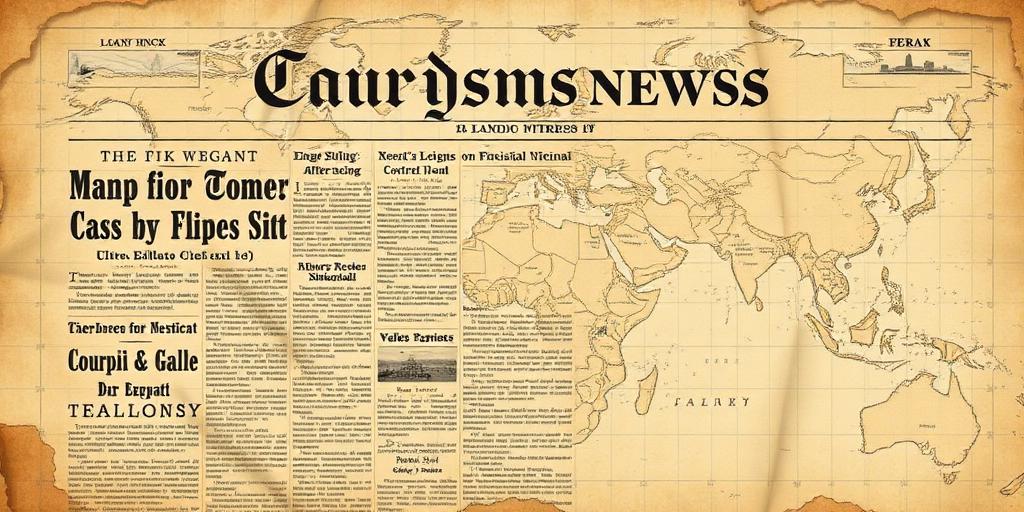The world's news archives serve as a comprehensive historical record, capturing events, trends, and societal shifts across time. These archives, whether maintained by national libraries, universities, or private organizations, offer invaluable insights into the past, enabling us to understand the present and anticipate the future. By examining historical news coverage, researchers, policymakers, and the general public can gain a deeper appreciation for the complexities of global events.
The Value of Historical News Archives
- Preservation of Information: News archives ensure the long-term preservation of journalistic content, preventing the loss of critical historical data.
- Contextual Understanding: Historical news provides context for current events, helping us understand the roots and evolution of ongoing issues.
- Research Opportunities: Archives support academic research in various fields, including history, political science, sociology, and media studies.
- Public Education: Accessible archives promote public education by offering firsthand accounts of historical events and diverse perspectives.
- Policy Development: Policymakers can use historical news to inform decision-making, learning from past successes and failures.
Accessing World News Archives
Many news archives are increasingly accessible online, offering digital collections that can be searched and analyzed remotely. Resources such as the Library of Congress, ProQuest Historical Newspapers, and university-led digital archives provide vast repositories of historical news content. These digital archives often include features such as optical character recognition (OCR) for text searching and metadata tagging for improved navigation.
Utilizing Archives for Learning
To effectively learn from world news archives, consider the following strategies:
- Cross-Referencing Sources: Compare news reports from different sources to gain a balanced perspective on events.
- Analyzing Editorial Tone: Evaluate how editorial viewpoints may have influenced news coverage.
- Identifying Trends: Look for recurring themes and patterns in historical news to understand long-term trends.
- Examining Primary Documents: Supplement news reports with primary documents, such as government records and personal letters, for a more complete picture.
- Engaging with Metadata: Use metadata tags to filter and sort news content based on date, location, and topic.
Conclusion
The world's news archives are a vital resource for understanding the past and informing the future. By preserving and providing access to historical news coverage, these archives support research, education, and policy development. As technology continues to enhance accessibility, the potential for learning from these archives will only continue to grow.









